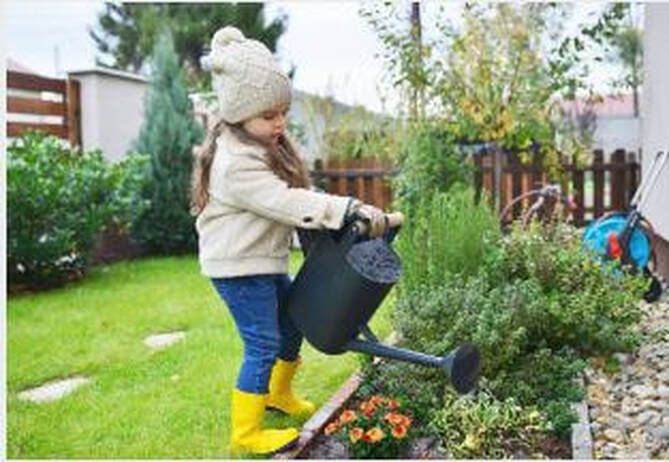Kids' Kampus
|
It can be difficult for kids to properly grasp the concept of money. They see adults buying things by tapping a card or pressing some buttons on their phone or computer, but they rarely see money exchanging hands nowadays.
On top of that, right now they might overhear terms like “cost of living crisis” and “recession”, which can all sound pretty scary. As children, we were probably told “Money doesn’t grow on trees” and “I’m not made of money”, but it’s time for us to clear things up for this generation of kids. Keep the conversation light and openToddlers are curious about the world around them, but they can get overwhelmed if you discuss the detailed complexities of money. The aim is to make sure it’s not a taboo topic, without confusing them with explanations of investment portfolios and VAT. Include small children in money conversations. It will be beneficial for the child long-term if they know they can approach you with questions about money, or even to contribute to the family’s financial goals. When shopping with children, try using actual cash instead of cards. Show them how we look at price tags, give some money and get some change. Consider opening a bank account so children can watch their savings grow, and let them set their own savings goals. Familiarise them with the 3 “s-words”When talking to kids about money, focus the conversation on the 3 s-words:
These concepts are relatively easy to understand for pre-schoolers who have ever received pocket money or birthday cash. They also help lay a basic foundation for money management throughout life. A good way to approach this is with three jars: one for spending money, one for saving and one for sharing. Sharing could be about giving money to a charity they care about, or about buying a present for a friend or sibling. The spending jar should contain cash they can take out whenever they want, like to buy sweets. For the saving jar, have them decide what they want to buy, and only take money out when they have enough. Avoid passing on money anxietyAs adults, many of our concerns are centered around money - or a lack of it. Especially now, when many families are having to tighten their purse strings, the strains of money can really get us down. Although it’s important to include children in chats about money, try to avoid letting anxiety leak into these conversations. Instead of saying “We can’t afford it”, try saying “That’s not in our budget right now.” If your child has their eye on a particular toy, don’t automatically tell them it’s too expensive. Instead, acknowledge that it would be nice to have, and explain that you might have to save for a while or put it on the Christmas list. Lead with responsible money habitsKids look to their parents for clues on how to behave, and that includes how to manage money. Set expectations and awareness around responsible habits. For example:
Blog written with inspiration from https://parentingplace.nz/.
0 Comments
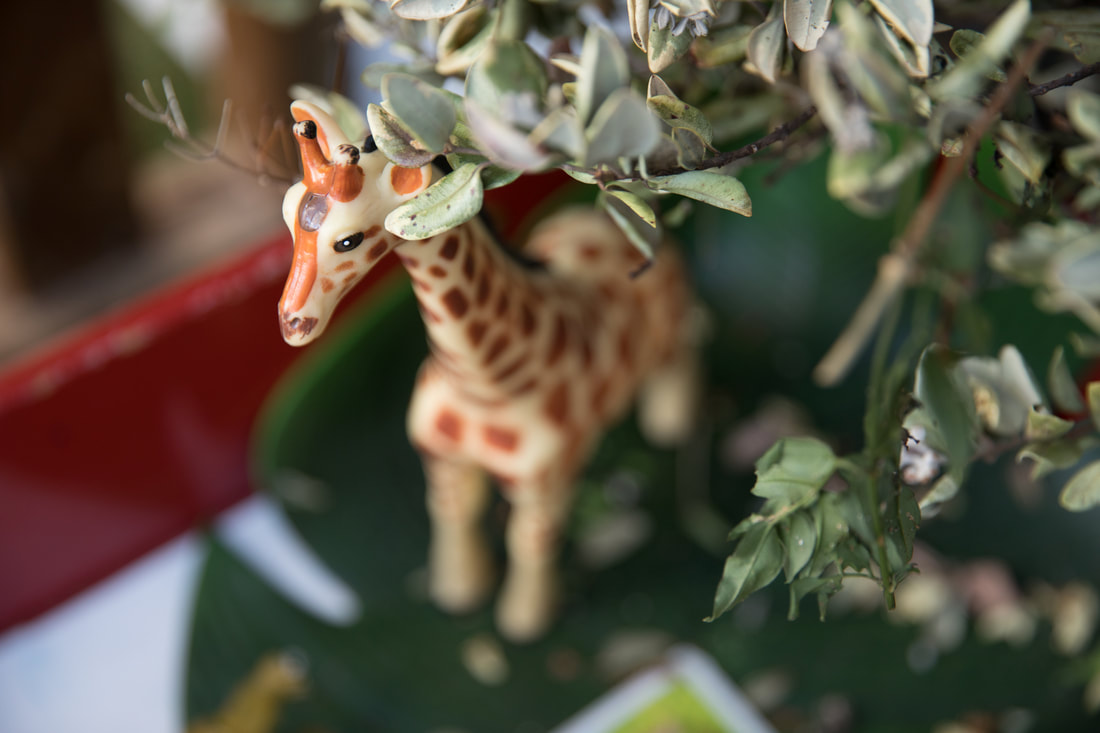 While it might not be something we all learned growing up, the act of mindfulness isn’t just for adults. In fact, you can instil mindful habits in children from the age of 3 or 4. This doesn’t have to solely be a technique they turn to in times of trouble; it can be an everyday tool that helps them explore all kinds of feelings. And yes, it’s possible for children to be still and quiet for long enough to feel the benefits. What is mindfulness?It’s a term that often gets overcomplicated, but mindfulness is simply about being aware of something. In other words, you let the mind be fully attentive, or “present”, to what’s happening right now. The idea is that we spend so much time overthinking about the past or stressing about the future that it causes anxiety and makes us more reactive to stress. Mindfulness helps us to relax and simply enjoy “being”. What are the benefits of mindfulness for children?Mindfulness has the potential to help children learn how to focus and manage their emotions. It’s a tool children can come back to whenever they’re faced with a difficult or stressful situation, helping them to manage their emotions and respond appropriately. Young children benefit from mindfulness practice as these habits in early life will influence their behaviour throughout adulthood. They can understand the beauty of being in the present moment, and find ways to switch off from the constant distractions of everyday life. 5 ways to teach mindfulness to childrenWe can turn everyday acts into mindfulness exercises for kids. The entire process revolves around slowing down and engaging the senses. It’s all about tuning into our awareness, even if we’re just eating breakfast or going for a swim. Try out the following 5 mindfulness exercises to see which resonates most with your child. 1. Create a sensory box It’s easy to build a sensory box. Simply find a box and fill it with items of different properties that might be calming for the senses. For example, your sensory box could contain craft feathers, leaves, chewing gum, play dough, a lavender stalk, bubbles and a cuddly toy that sings a gentle tune. These items encourage children to pay attention to their senses and to relax. For example, the bubbles encourage deep breathing and the play dough can help to release tension. This sensory box could help soothe your child if they’re feeling anxious, angry or upset. 2. Take walks in nature Go for a walk in the park, on the beach, in a forest or just around your neighbourhood. Encourage your child to pay attention to their senses. Can they hear the birds or cars? Can they feel the breeze on their skin? Can they smell the freshly-cut grass? The ‘5, 4, 3, 2, 1’ mindfulness technique is usually good if they’re feeling strong negative emotions. Ask if they can name: 5 things they can see, 4 things they can hear, 3 things they can feel, 2 things they can smell, 1 thing they can taste. This exercise interrupts negative thoughts and brings us back to the present moment. 3. Practise belly breathing Laying on the floor together, place one hand on your chest and one on your belly. As you inhale, fill your belly up like a balloon and notice how one hand rises. As you exhale, let the belly deflate and notice the air leaving the mouth. Ask your child to take a mental note of any sensations they notice. If they get distracted by outside thoughts, they can “puff” them away like a cloud when they breathe out. 4. Do the "three-breath hug" Give your child a big hug and take three deep breaths together. Relax your muscles and let tensions melt away. Simply being held by someone that makes us feel safe can dissolve stresses and frustrations. Do the three-breath hug when you say goodbye in the morning, whenever you notice your child feeling down, or just when you both fancy a hug. 5. Teach them to relax their muscles Progressive muscle relaxation relaxes the mind and body at the same time, and helps stop outside thoughts from causing tension. Work up from your toes. Tense them by curling them, hold them tight, and then relax them. You can then practise this technique on your feet, followed by your calves, quads, and so on. Finish by scrunching up your face and then letting it relax (pay special attention to relaxing the jaw and forehead!) This particular exercise can help kids drift off to sleep, so try it at bedtime. Use a soft, gentle tone as you instruct your child about which body parts to tense and relax. We’re here to support you on your parenting journey. If you have any questions or want to enquire about our Kids’ Kampus Childcare Centre, give us a call on (09) 630 1454. Blog written with inspiration from https://parentingplace.nz/.  You’re just about to put dinner out on the table so you ask your pre-schooler to put away his toy trains and join you in the kitchen. He mumbles in response or says nothing at all, but when you head out to the living room, the trains are everywhere. It happens often with kids around this age. Sometimes interactions aren’t great — you feel you’re struggling to connect with them or that you’re being outright ignored. So what can you do? Try the UDEC techniqueYelling at your little one hasn’t worked. They might act as though they haven’t heard you at all, or they might swing around their train set a bit more aggressively. At this age, children are becoming more independent. They start tuning out things they don’t want to hear, so try not to get annoyed if you feel you’re being outright ignored. However, if you’re ready to change technique, try the “up close and personal” UDEC approach.
Why can UDEC be effective?Put simply, you’re taking extra steps to encourage engagement from your child. Repeatedly yelling through a wall can just make them feel as though you’re angry, and the message gets weaker when it’s said over and over. Taking the stress out of the situation often encourages a more positive response from your child. It keeps the mood a little lighter and has the potential to get our kids on board with whatever we’re asking. How to respond when your preschooler ignores youIn addition to practising the UDEC approach, the way you phrase your requests can play a big part in triggering the right kind of response.
We’re here to support you on your parenting journey. If you have any questions or want to enquire about our Kids’ Kampus Childcare Centre, give us a call on (09) 630 1454. Blog written with inspiration from https://parentingplace.nz/. Talking About Staying Safe With Children
Adventurous, independent and inquisitive children can have parents thinking about safety - often! It’s great that your little one is keen to explore, and while you probably want to give them the space to do so, it’s natural to be concerned about their safety. Help them make good choices as they navigate the world with some constructive conversations. Chat openly and calmly about some hypothetical situations. By discussing the potential dangers that might arise, your child builds up some risk-management skills, and you can relax (a little!) knowing they know how to stay safe in certain situations. Of course, striking a balance is important here. We don’t want to scare kids by teaching them about the horrors of the real world. So avoid going into detail about worst-case scenarios, even if that’s all you can think about! Just building awareness of potential dangers is the goal here. Ask children to put themselves in hypothetical situations While we can’t keep both eyes on children at all times, it’s still down to us to make sure they’re safe. We can let them spread their wings as they grow up and equip them with the confidence to assess risk and make smart choices. Embark on a “what would you do if…” line of questioning. Invite children to place themselves in hypothetical situations - keep it light and casual and feel free to throw in some funny questions to make the activity enjoyable.
This provides a safe place to problem-solve, giving children time to assess how they’d really respond to potentially harmful situations. Hopefully, they’ll be able to return to these strategies if something similar ever did happen in real life (minus the aliens and Godzilla, of course). Practical Q&A It helps to talk about health and safety risks children might come across on a daily basis. Avoid going straight to “lecture” style conversations; try asking open-ended questions for a more interactive and productive chat.
Stranger danger Stranger danger is much less of a risk than our parenting emotions would have us believe. However, it’s still important to teach our children how to interact with strangers - even if the leading benefit ends up being our own peace of mind. Generally, we can start teaching children about stranger danger at 4 years old. Avoid going for the blanket advice of “don’t talk to strangers”. Sometimes, children may need to talk to strangers. What would they do if they were lost, for example? Instead, teach kids about when it’s appropriate to talk to strangers, and make sure they know which behaviour to be wary of. The New Zealand Police recommend this behaviour-savvy approach, rather than focusing on the “types of people” that may cause harm. Show them how to identify inappropriate or potentially harmful behaviour, and what to do when they see it. Cover the following stranger danger foundational guidelines with your children:
Keeping our kids safe is our number 1 priority as parents. You can have these chats without putting real fear into children; make sure they’re aware of risks but still feel confident in exploring the world around them, within the boundaries you’ve set. We’re here to support you on your parenting journey. If you have any questions or want to enquire about our Kids’ Kampus Childcare Centre, give us a call on (09) 630 1454. Blog written with inspiration from https://parentingplace.nz/. There’s no doubt that you love the idea of being “a team” with your child. But actually building that parent-child cooperation takes input from both sides, with you leading the way and encouraging your little one to get involved in doing daily tasks, making decisions and solving problems.
It’s easy for us to want to save time when doing normal day-to-day jobs. So, when our children challenge the way things are done, we might respond with “just do it this way”, “let me do it” or “because I said so”. However, if we switch out instructions or standard replies for questions that encourage cooperation, your child could benefit from more opportunities to work with you. Inviting cooperationAside from the height difference, children are similar to adults in a lot of ways. For example, they don’t respond well to too many demands. While it’s important as a parent to set boundaries, too many responses of “because I said so” can lead to resistance and power struggles from children. They respond well to positive language when inviting cooperation. In other words, instead of telling them to do something and expecting them to act without question, be open to responding to their challenges and answering the many whys that tend to follow. Yes, it might take a lot longer to get things done, but your child will appreciate you giving them some input and will gain an understanding of why, in fact, things are done in such a way. Practise parent-child cooperation with phrases like:
Instead of “tidy up your toys”, try saying something like “your toys are still out”. This way, you’re not accusing your child of not doing the jobs they’re responsible for - you’re essentially putting the ball in their court. Not only does this open the door for respectful collaboration, but it also encourages them to think independently about what they need to do to improve the situation. Cooperating from an early ageEncouraging cooperation from an early age sets the foundation for this teamwork-based relationship to come naturally. Share chores like setting the table or tidying up toys, and point out the benefits of cooperation as you go along. Statements like “look how quickly we can do this when we work together” and “thanks for helping out, now we have more time to play” are great places to start. Practise turn-taking during these shared jobs. Children from as young as 6-9 months can engage in back-and-forth interactions, and can also learn to imitate what you’re doing. Whenever you tidy something away, let them copy you, and keep going until you’re happy with their input. We’re here to support you on your parenting journey. If you have any questions or want to enquire about our Kids’ Kampus Childcare Centre, give us a call on (09) 630 1454. 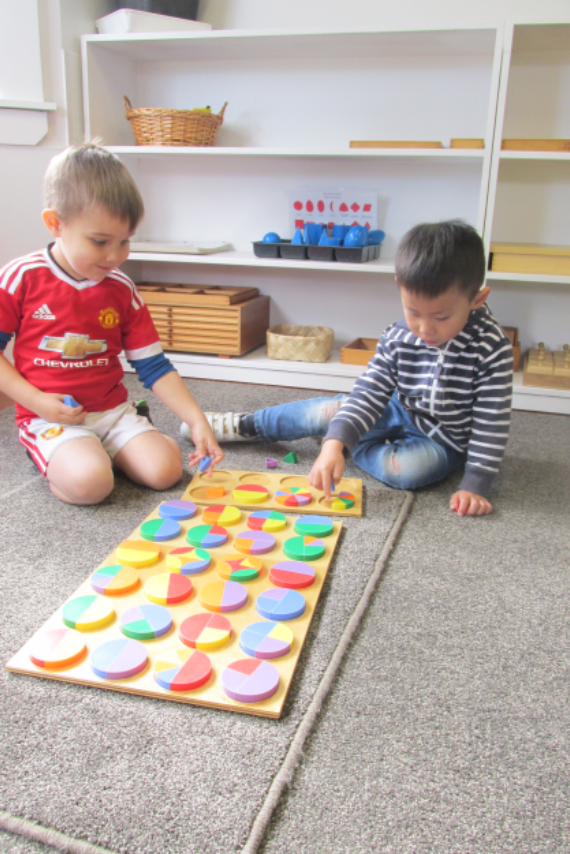 Children don’t always get along. Whether it’s with their siblings or classmates, from time to time, we can expect clashes and tears. The natural response is to ask one (or both) of the kids to say sorry. We usually accept the apology even when it’s mumbled or said with a furrowed brow, and the children are free to run off and play together once more. But forcing children to apologise isn’t always the best strategy. Forced apologies may not be real, and spending more time hashing out the problem with the child is usually better in both the short-term and the long-term. The problem with forced apologies The problem with forced apologies is exactly that - they’re forced, not genuine. Children may go through the motions of saying sorry to avoid getting into trouble or so they can carry on with playtime. That doesn’t mean they always feel sorry. In fact, they might not understand what they’ve done wrong to begin with. Plus, the person on the receiving end of the apology will be able to tell it’s not real. The process doesn’t do much to strengthen the children’s bond, nor does it teach them how to properly solve conflicts in future. How to encourage an honest apology Forced apologies don’t do much to address the real issue, they don’t help kids develop empathy, and they don’t cause them to feel genuinely remorseful. Most importantly, they won’t help them behave better in future. When you’re presented with upset children, try this process instead of resorting straight to the “say you’re sorry” line. 1. Be there for both children Whether they’ve had a toy stolen, been called something hurtful or been physically injured by another child, the first response should be to tend to the hurt child and make sure they’re okay. After that, it’s time to have a conversation with the child that “needs to apologise”. By telling them to say sorry immediately after the incident, they might feel more anger towards their sibling/friend/classmate/you. Instead, give them time to calm down and make sure they’re okay too. If they’re still feeling angry or upset after the conflict, they won’t want to apologise. If they do have to apologise straight away, it won’t be genuine. 2. Hold a constructive conversation Once you’re confident the child feels safe, you can talk to them about the events that just unfolded. Let them know you’re interested in hearing their side of the story (because as we know, there are always two sides to every story!) Ask open-ended questions to encourage them to explain what happened in their own words. Make them feel heard and understood. 3. Get them to consider the other perspective As you listen to their version of the story, avoid the urge to make a judgement about who was right or wrong. Now they’ve had the chance to air out their own frustrations, ask them to consider how the other child might have felt. This gives them the opportunity to recognise how their actions were hurtful. 4. Let them figure out how to say sorry Once they’ve gained an understanding of where they might have gone wrong, we can let children decide how they want to apologise. Ask questions like “What’s the right thing to do now?” and “How can you and [Name] play nicely again?” We want children to feel like you’re letting them take the reigns, not forcing them to take the blame. Try not to make them feel resentful or embarrassed here, just let them repair the relationship on their own terms. This could take the form of a verbal or written apology, a hug, a handshake or a drawing - let them be creative if they like! If they’re not sure how to say sorry, give them some ideas but let them decide how they’d best like to move forward. What are the long-term benefits of this process?If we consistently use this approach in place of the forced apology, we’re giving children more opportunities to look at things from another perspective and to really want to repair the bond. This is about letting children decide how to make things better, and sometimes, they may not want to apologise at all. That’s fine too. If they’re still angry (and feeling a little stubborn), continue to listen and understand. Over time, they’ll likely come around and choose to make things right. We’ve noticed that when children have the opportunity to own their mistakes, they’re able to develop more honest, meaningful relationships with their friends and family. This article was inspired by: https://parentingplace.nz/resources/sorry-bobby-should-we-force-kids-to-apologise 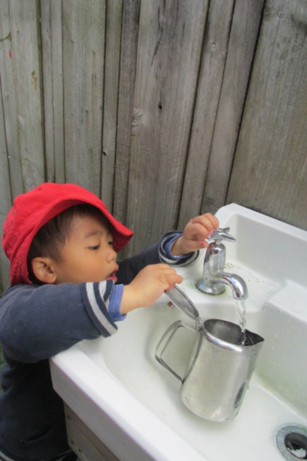 You’d be forgiven for getting frustrated by the many cries of “I’m bored” from your child. It’s tempting to hand over a digital device to keep them occupied while we get on with the housework, some cooking or our own work at home. And while playing and interacting with your child is important for their happiness and development, sometimes it’s okay to just let them be bored, too. Here’s why. They learn to entertain themselves Even at pre-school age, children are capable of entertaining themselves, according to Associate Professor Michael Nagel at the University of the Sunshine Coast. Self-entertainment helps children learn to use their immediate environment to play and learn. This in turn boosts their creativity, problem-solving skills and self-esteem. You’d be surprised at how children can find enjoyment in even the most mundane of things! Cardboard boxes, for example, can be a perfect substitute for games and videos on your phone. Letting children get bored teaches them to rely on their inner resources rather than external resources, a skill that will certainly benefit them in the long term. Just like for adults, it’s healthy to let the mind wander sometimes - particularly in our world of constant stimulation. We all need to let our brains rest and relax every now and again. Boredom helps teach resilience We want children to be able to keep going when things get tough. Letting them be bored decreases their reliance on you for entertainment (cue the whines and the reach for the TV remote!). Instead, they’ll have to rely on themselves to find something to do or think about. This free time gives children the space to explore their own activities on their terms, encouraging initiative and building the self-confidence to do their own thing every now and again. Even if that thing sometimes involves making a mess! Boredom can help them form relationshipsInstead of losing their free time to phones, tablets or the television, letting your child become bored benefits them from a relationship-building perspective. It’s an opportunity for them to study other people - whether that’s family members or other kids - and learn how to communicate or read body language. You might find their confidence in social interactions comes on leaps and bounds when they’re slightly out of their comfort zone and have to push themselves to initiate conversation or reflect on the behaviour of others. It improves psychological well-being Research from the American Psychological Association has found that people get more meaningful moments out of life when they’re bored. This is an opportunity to reflect on past events and take these insights into the future with us. In other words, when your little one lets their mind wander, they process things on a deeper level and find more significance - even appreciation - in life. While we all want to be there for our kids, it’s important to remember they don’t need you around every second of the day. In fact, giving them this independence helps them learn how to handle things themselves - while also giving you some valuable time on your own or with your partner. 24/7 parenting can actually crank up your stress levels, which has a more negative effect on children than a little boredom every now and again. So take some time for yourself and don’t give into their requests for constant entertainment. Your little one will thank you for it…eventually! edit. 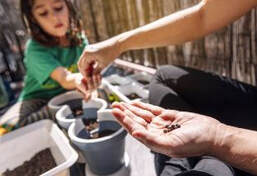 The rise of apartment living and the increase in screen time means children today are spending less time outdoors amongst nature. Think back to when you were a child. I bet some of your happiest memories involve playing outdoors and getting muddy! So many young children today prefer to spend time in front of their TV or on their iPad, but they’re missing out on the benefits that using natural resources to play offers. As children explore the world, they use all of their senses - they can see colours and patterns, experience new natural textures, and smell the leaves, flowers and sea air. Nature itself presents so many opportunities to experiment, create, play and learn. Have them collect natural resources and try some of the following games, to give your child more opportunities to develop using methods that involve plenty of fresh air - and far less time on devices. Create a natural world Provide kids with a shoebox or another cardboard box they can use to reinvent a new world using items they find in nature. From a dinosaur land to a farmyard and their very own magical kingdom, ask them to collect pebbles, sand, twigs, flowers, leaves and hay to build their natural world. This game helps to inspire creativity, develop imagination and encourages them to work on their language skills as they play and tell you all about their new world! Make cakes (just don’t eat them!) Give children some cupcake cases and ask them to make cakes using anything they can find. Playdough, sand and mud make a good base, and they can decorate their creations using twigs (candles) and petals or shells (sprinkles). This helps children to develop dexterity in the fingers - just be sure to supervise to make sure the cakes aren’t too tempting! Practise writing their name If using paper or an iPad isn’t engaging your child as much as you’d like, they can try writing their name in the sand or mud using resources they find outside, such as sticks. Otherwise, they could collect a bunch of shells and lay them out to make the letters in their name. (Or their initials, if their name’s too long.) This is a fun way to develop their literacy and name recognition skills. Create a treasure basket Discover the games they come up with when you give them an opportunity for heuristic (open-ended) play. Encourage them to collect any items in nature they like (this could be leaves, flowers, shells, pebbles and anything else) and let them explore and play as they please. Heuristic discovery gives children the chance to explore different textures and sights, and to make their own decisions to form an understanding of the world around them. Make natural jewellery and perfume From linking flowers together to threading shells through some string, making jewellery from items around the earth is a fun, challenging game that helps to improve hand-eye coordination as well as creativity. Children that show an interest in your toiletries might also love to create their own perfume. Let them fill a plastic bottle with water and petals so they can work on their own “signature scent”. To learn more about the ways we encourage children to interact with nature here at Kids’ Kampus, don’t hesitate to reach out on [email protected] or (09) 630 1454. 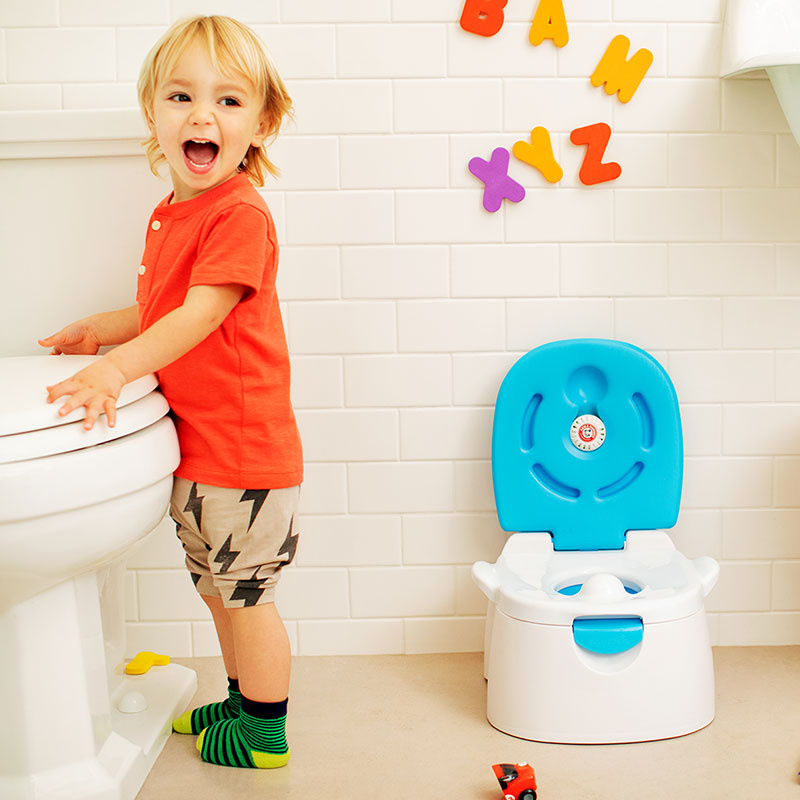 Dry nights can seem like a long way away. For most children, night time toilet training takes longer than day time training, and it’s normal for your little one to take months to learn to master the potty at night. For super-sleepers, potty training can last up to 2 years. The important thing is to remember to take your time and remain positive. This doesn’t happen automatically, but if your child is showing signs that they are ready for night time toilet training, then the following tips could help you look forward to reliably dry nights sooner than you think. Signs your child could be ready for night time trainingEvery child is unique and those big milestones happen at different times in their lives, but there are some signs that suggest your child could be ready to start night time training:
1. The importance of preparationAs with anything new, preparation is key. In addition to preparing the home (invest in a protective mattress cover, expect more laundry), you’ll want to make sure your child also feels ready. Let them know that they’ll now be going to the toilet in the night. Be encouraging and frame the entire thing as an adventure! They’re likely to feel more grown-up, so get excited with them about their new-found independence. 2. Establish a bedtime routineA night time routine is everything. Make going to the toilet a part of their routine, making sure they do a “proper wee” instead of rushing. If it helps, sit down and talk to them while they’re on the toilet, so they take their time. Remind them to get up and go to the toilet at night if they feel like they need to. 3. Monitor fluid intakeHydration is important, so avoid the urge to stop them having a drink too close to bedtime. However, it can help to make sure they’re drinking lots during the day, so they don’t need as many fluids as the evening draws in. Do avoid sugary or fizzy drinks later on in the day - stick to milk or water instead. 4. Expect accidents along the waySetting realistic expectations helps to keep frustrations under wraps when things don’t run completely smoothly. Children don’t have as much control over their bladder while they’re asleep, so even if your child was relatively quick to pick up daytime toilet training, night time training can be a longer process. Remember that wetting the bed is beyond their control, and if training is causing stress or anxiety, put it on hold and come back to it when they feel more ready. Accidents will happen - especially during the early stages - but remain calm and reward/reassure their efforts throughout. 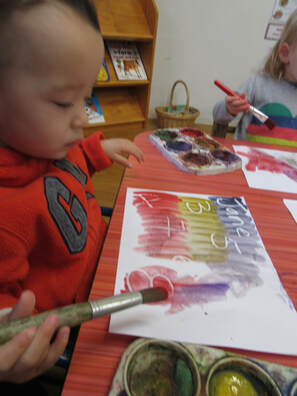 Speaking to Their Inner Artist: Discussing Your Preschoolers Artwork Children are naturally curious, and having the opportunity to explore art is not only fun for them, but also educational. This free play helps them to form connections in their brain, as well as to develop fine motor skills and critical thinking. You can further encourage their creativity by asking the right open-ended questions about their painting or drawing, to show them you support their work and help them to express their ideas. Tell me about what you’ve made? We know how tempting it is to ask “what is it” when you’re unsure, but this question will likely be met with a confused face or angry scowl! Instead, ask kids to talk you through different elements of the piece, to give them the opportunity to tell you what they’ve created, without causing offence. Where did you get your idea? Discuss their inspiration for the piece so you can understand more about their creative process. When working with a child, avoid giving them a set plan or outcome. Let them explore using their imagination, and avoid the urge to help. Which part do you like best? Ask them about their favourite part, and follow up with open-ended questions such as “why?” or “what makes this part so good?”. This encourages them to critically analyse their work and to learn more about their own preferences. Ask them this before giving your own positive feedback, so he or she can learn to identify their own feelings and develop self-confidence in their art without the affirmation of others. Why did you include x? Get specific with your questions and comments. Ask them about the colours, lines, shapes and textures used, to show them how you’ve paid attention to the finer details. This encouragement is key in building their self-esteem. What would you name this painting? Ask them to give their masterpiece a title, which can make it feel more meaningful. Naming the piece also encourages a new depth of thinking, as children will have to consider the piece’s primary theme in order to come up with a title. What materials did you use? Focus on the process over the finished product. By discussing how your child worked on their piece, you’re letting them know they can express themselves freely without being concerned about the opinions of others. This promotes intrinsic motivation. Without this, a child may be more likely to create something in order to gain approval from you or other carers, rather than for themselves. Ask them anything about how they developed their creation. Where would you like to keep it? Preschoolers are often very proud of their artwork, so let them have a say in where it will be displayed. Putting this decision in their hand stretches their imagination beyond the painting or drawing, and can instil a larger sense of pride and ownership. We pride ourselves on providing an environment where children feel happy, protected and able to explore their creativity. Located in central Auckland, Kids’ Kampus is committed to nurturing your child’s individual qualities and potential. For more information about our curriculum, call (09) 630 1454. |
.Margie Blackwood, owner and Director of Kids' Kampus
April 2024
. |
|
Kids’ Kampus Childcare
50-52 Shackleton Road Mt Eden, Auckland 1024 New Zealand |
|
